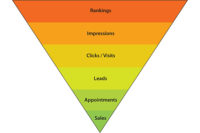Ask yourself this, what is the first thing you do when you’re looking for new information? For example, you want to know what is the best Italian restaurant in the north end of Boston, is Oak or Maple a stronger wood for building a table (yes, I have asked this question), or how to tie a Windsor knot? Whenever I’m looking to learn something new, my first immediate inclination is to open my computer, fire up Google, and ask my question. Many times, I get exactly what I’m looking for — 479,000 results at a time.
Think about that, almost half a million results were matched to my question, and instead of trying to discern which one best aligns with my inquiry, Google scrapes the internet in 0.86 seconds and ranks the results based on specific criteria. One powerful and important aspect that helps Google rank the results is online reviews.
Here is why reviews are important and how you can leverage them to make your company more searchable online.
GOOGLE’S PRIORITIES
Google’s algorithm allows the search engine to scrape the entire internet and provide blazing fast results in a matter of milliseconds. Its algorithm is one of the best kept secrets of the internet. However, after consulting a few search engine optimization (SEO) experts, there seems to be a list of qualifications Google looks for to help it categorize this ranking system. In an effort to not completely bore you to death, here is a quick summary (if you want to go into more detail, send me an email).
• Keyword usage;
• Site structure;
• Site speed;
• Time spent on the site;
• Number of inbound links; and
• Quality of inbound links.
To add, earlier this year, Google announced two major things it’s looking for when it comes to SEO ranking: “Content and links pointing to your site.”
The reviews you collect are relevant because if you collect reviews on your site, it keeps the content new and fresh while also improving two of these six major areas: keyword usage and time spent on the site.
THE CORRELATION BETWEEN REVIEWS AND KEYWORD USAGE
If someone is publishing a review on your company, they most likely are using words you want to be associated with — assuming that the review is positive. Say you’re a contractor and you’re frequently asking customers to leave reviews. I could see them writing something like this: “I had a great experience with Joe’s HVAC. He fixed my a/c unit in a matter of minutes and was friendly, clean, and quoted me a fair price. I highly recommend Joe’s HVAC to anyone looking for HVAC repairs in the Louisville area.”
In this review, I underlined the strong keywords and phrases that help build Joe’s HVAC’s online reputation in Google’s eyes.
THE CORRELATION BETWEEN REVIEWS AND TIME SPENT ON A SITE
Let’s say your reviews are starting to hit critical mass, and you have a good amount to boast about. Simply the breadth and depth of your reviews will keep people engaged on your site. It’s like browsing IMDB, you only went to the site to see how old Harrison Ford is, and 45 minutes later, you’re now an expert on his life and every piece of cinematography he’s ever been in.
Reviews work in the same way. People read one review, then another, and another, and before you know it, they’ve been on your site 15 minutes longer than planned.
THE POWER OF ONLINE REVIEWS
Reviews are powerful — there is no denying that. Nearly 90 percent of consumers say positive reviews influence their purchasing decisions.
Now, reviews aren’t the end-all, be-all of your online presence. According to MOZ, they tend to only account for driving 10 percent of a website’s traffic. But 10 percent is 10 percent, and if you want to “stump with the big dogs,” paying attention and curating reviews is a necessary step in the process of building your service company.
LIMITING NEGATIVE REVIEWS
As you can see, customer reviews have the potential to make or break your brand’s credibility. Too many negative reviews can deter someone from purchasing your product before they even get a chance to talk to you.
So, how do you limit the amount of negative reviews posted to your site while improving those beneficial five-star ones? Here are a handful of actionable ways for you and your team to boost your online reputation, build your brand name’s trust, and ultimately improve what others say about you online.
• Make changes based on feedback — Make it known that you listen to reviews by responding to them online. Set aside 10 minutes every day to quickly scan your reviews and respond. Being this active shows customers that you care.
• Claim your business on review sites — Sites like Yelp, Facebook, and Google are great places to start building your online reputation. Claim those pages on these sites to allow people to submit their reviews.
• Ask the happy customers to provide reviews — You obviously want positive reviews so make sure to ask your happy customers to write them.
• Ask the legacy customers — Customers who have been clients of yours for a long time are much more willing to leave reviews than new ones. By asking this group, you’re tapping into the norm of reciprocity.
• Make it easy for people to leave reviews — Purchase a system that allows you to automatically send customers text messages and emails immediately after the work is completed by asking them to review your service. The longer you wait, the easier it is for life to get in the way, and they’ll forget to leave a review.
Publication date: 2/20/2017
Want more HVAC industry news and information? Join The NEWS on Facebook, Twitter, and LinkedIn today!




